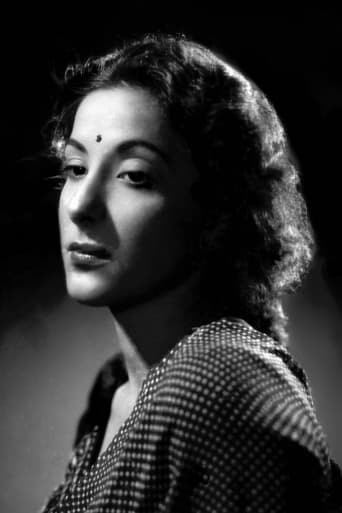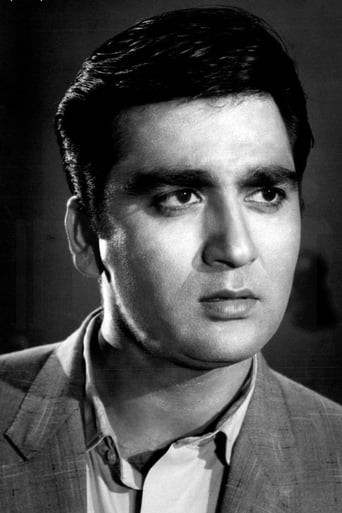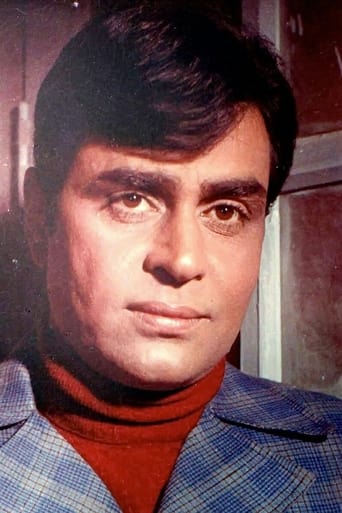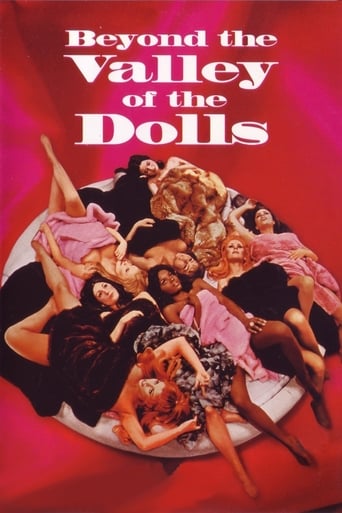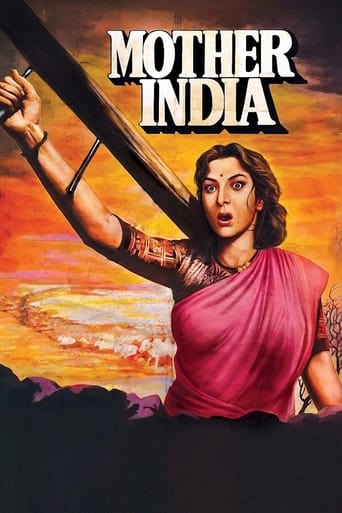
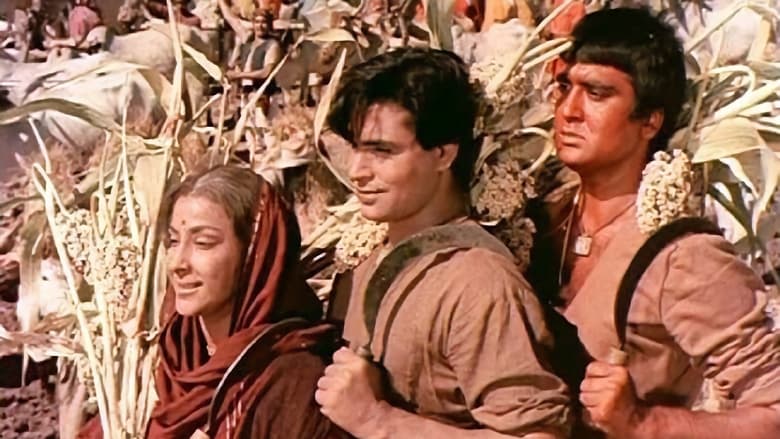
Mother India (1957)
A poverty-stricken woman raises her sons through many trials and tribulations. But no matter the struggles, always sticks to her own moral code.
Watch Trailer
Cast


Similar titles
Reviews
If, like me, you're fairly new to Indian cinema and think, as I did, that it's all singing and dancing Bollywood, here is a brilliant mix of what we might expect and an epic tale that we in the West can really appreciate and enjoy.I'd only been to the monochrome world of Indian director Satyajit Ray before and frankly, I didn't seem to appreciate those as much as many do. In time, I trust that I will. Mother India, which I bought blind, seemed to be like approaching, say opera, by going to see one that was commercially accessible but maybe not what the purest of critics might approve of. That is was also Oscar nominated in the World cinema category is also testament of how popular and well thought of Mehboob Khan's Indian masterpiece was.I personally feel that the often quoted "Indian Gone with the Wind" is both somewhat false and misleading. True, its scope and length as well as the beautifully lavish Technicolor (must have been very expensive to make at the time) bear comparison. The central character is no Hindu Vivien Leigh either and even more amiss is that it's not set against a background of War.The war, indeed, centres around land, land on which to sustain a crop, enough to feed one and one's family. Greedy landowners are the Generals here who cruelly tax their tenants ever harder. Mother Nature herself is also a strict and tempestuous taskmaster as famine and disease strike.The undoubted stars are the cinematography and the Mother of the title. There is a huge sweep of panoramic camera as harvesting scenes, rivalling that of Russian propaganda films and bright sharp colours fill every frame.Nargis, as peasant woman, played by actress Radha, tells us the epic story of her life in flashback, charting how, as a young bride, she arrived at a farm mortgaged to an unscrupulous moneylender. Her husband is then injured in an accident and abandons her and their children, Radha perseveres to bring up her sons and cultivate the land.As is often, so far as I can tell, the case with Indian drama, the family and its issues are paramount and great lengths are taken to explore all moral angles and Mother Earth is no different.Yes, it does swell into high emotion and near melodrama but that's Indian cinema for you, but equally pathos and despair are equally and dramatically handled. The sound, though, is unfortunately, pretty ropey, breaking up with each sibilant word and with a background of quiet crackles.One reviewer complained of poor subtitling - on my DVD (confirmed Amazon purchase) they are fine and include the lyrics to the songs, but maybe mine is a later release. The songs add to the narrative, not the other way around and much is dialogue. The singing is usually actually very lyrical and beautiful, so that it's welcomed, which isn't what I had expected to be the case.
It was midnight couple of weeks back, and Mother's Day mode was in the air. Turmed on the TV and the movie was about to start. Astonishingly myself not a core Hindi movie follower glued in front of the TV way until 3.30am that night/morning. The reason was the superb performance by Nargis in the movie. Possibly a magnificent portrayal by an actress in a movie, Nargis pulled a character not withholding the burden, humiliation and suffering she endured - just because of her love for her sons. And the ending in such heart hammering way, perfectly crowning the character Mother India. The movie is one of those poured the heart and soul of a mother despite shortcomings. And to think I watched it on my first Mother's Day without my own late beloved mum. There is no me or us, without our own mother.
Mother India sits right at the top and shares the seat with just a handful of other movies as one of the best films ever made in Indian Film History. Deservedly, it also garnered an Oscar Nomination for Best Foreign Film - a first for Bollywood. Need I say more? Let me try...Five years after her wedding, Radha, a regular village girl finds she has been abandoned by her husband (who leaves her in despair) and left to cope with his never-ending debt to Shuki Lal, the village "Munshi". To feed her children, Radha toils like a farm-animal and is able to save just enough food to eventually bring up her children. The injustice to and torture of their mother is interpreted in opposite ways by her children: while the elder Ramu is humble and just, the younger Birju who seethes with hatred for Sukhi Lal turns outlaw. While Radha tries to bring back Birju with love, Birju plans to finish Sukhi Lal's debt once and for all.Mehboob Khan had made some good movies in his career, including a milestone first all-colour (technicolor) Bollywood feature. But nothing could have hinted at the brilliance to come in his waning years. Defying a very many stereotypes, his was the first major Hindi film with a female protagonist, a cowardly abandoning husband (how RajKumar, men of men, agreed for that role is another story), no definitive hero-heroine pairs, etc. He tells the 172-minute story in flash-back as a memory of an old Radha inaugurating irrigation canals in her village. Taking his titular heroine through happiness, desolation, compulsion and resignation, he transformed box-office darling Nargis into an actress nothing short of a legend. We see her go from an innocent bride to an anguished mother to a revered "Mother" of the village.Nargis herself is most remembered for this career-defining and image-breaking portrayal (soon after which she married Sunil Dutt, who portrayed her bitter son Birju*). Sunil Dutt was a very under-rated actor, for the simple reason that all his great performances were never title characters, and were over-shadowed by more famous co-actors. His Birju is played with such realism and conviction that even today many comedians mimicking Sunil Dutt are actually mimicking Birju.The director's production team does work beyond their era and workstyle to create the look of the people and place over time. From famine to flood for the backdrop, youth to old-age for Radha and from bright to dirty earthen to faded colours, the team wins complete involvement of the audience by filling our visual and audio sense with realism just next to reality. The director chose to spend more of his limited budget on these aspects, and in turn had to sacrifice on the equipment he could use to capture the sights and sounds that were being realised: the movie was made on 35mm and mono-sound.Surprisingly, something I have noted as not being mentioned anywhere in literature connected to this movie is how without obviously being so, Mehboob created the most patriotic of Indian movies. The only give-away is in his choice of title Mother India. Depicting his motherland as a repressed and abandoned woman, and her children as peace-loving Gandhi-Ramu or rebellious Bose-Birju, Mehboob layers his movie with such fierce passion, it is impossible not to be overwhelmed by it.
This film had me in tears at least three times; and not tears of sadness, but because it was just so beautiful. Don't expect anything near Hollywood slickness; if you want to find errors and things to laugh at, there are dozens. But the whole spirit of the piece is very poetic. In Hollywood movies, the musical numbers are when I take a break and go out. But in Indian movies, the musical numbers are spellbinding! And in this one, perhaps the best. The lyrics, the melodies, the staging (even with noticeable lip-sync) are just wonderful. Take the best songs from Broadway musicals and compare them to these, they've met their match. The passion in the lead female voice matches Callas. Superb!


